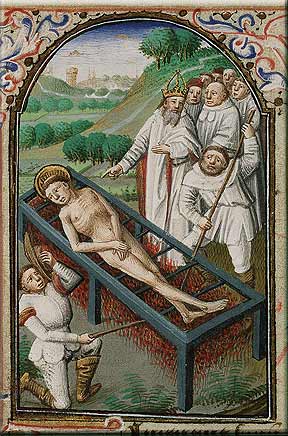I first got involved with direct giving to the poor because of the New Futures Orphanage. I was scouring the net, looking for just, real, and direct ways to impact the lives of the poor, with small funds. I came across a [ blog ] kept by an English teacher backpacking through Cambodia.
 She’d come upon an orphanage there that needed volunteers to teach some English to the children. Teachers would come through, and some would stay a while and do this, and she was captivated and decided to stay for much longer. I was captivated too, and I looked, and they needed $900 in small gifts – that’s all they were asking for last year, and it was being given in small gifts ($25, $35, $45 at a time) through [ givemeaning.org ] a site that serves as the vehicle for giving directly to such small charities.
She’d come upon an orphanage there that needed volunteers to teach some English to the children. Teachers would come through, and some would stay a while and do this, and she was captivated and decided to stay for much longer. I was captivated too, and I looked, and they needed $900 in small gifts – that’s all they were asking for last year, and it was being given in small gifts ($25, $35, $45 at a time) through [ givemeaning.org ] a site that serves as the vehicle for giving directly to such small charities.
They finally met their fundraising goal, which was used to provide some basic things to the orphanage, like cinder block walls and a roof to enclose the toilet. I read the updates from Claire, who was giving her time there. She reported on how the children were doing, their improving skills, what this means for their future. I read what the children thought about their situation, and their hopes for their futures; each one is an individual. I knew I had to help.
The poor are Christ to us. They are the icon, the image. They are the means by which we are saved, by being filled with love. Apart from them, I know I at least cannot be saved. They are the ones of whom Christ said, “inasmuch as you have done with your riches to the least of these, who are my brothers, you have so done to me in my impoverishment”.
Recently, the landlord sold the orphanage and the children had to be taken to a facility that doesn’t have electricity. So they need to raise money to get 12volt battery-powered lighting installed and survive with the soaring food costs. The project has established a funding goal of $1000. I’m asking you to help me help them. Take the cost of a night out, or a new video game, or a month of cable TV, and give directly to them, for this need.
Will you help? Please?
They are [ here ].
Direct Giving defined: Give in reality, not in theory. Give to people, not to ideas.
 She’d come upon an orphanage there that needed volunteers to teach some English to the children. Teachers would come through, and some would stay a while and do this, and she was captivated and decided to stay for much longer. I was captivated too, and I looked, and they needed $900 in small gifts – that’s all they were asking for last year, and it was being given in small gifts ($25, $35, $45 at a time) through [
She’d come upon an orphanage there that needed volunteers to teach some English to the children. Teachers would come through, and some would stay a while and do this, and she was captivated and decided to stay for much longer. I was captivated too, and I looked, and they needed $900 in small gifts – that’s all they were asking for last year, and it was being given in small gifts ($25, $35, $45 at a time) through [  St. Lawrence was summoned to the Emperor, who demanded he turn over to him the treasure of the Church. St. Lawrence ‘s response was to beg for time, which he received.
St. Lawrence was summoned to the Emperor, who demanded he turn over to him the treasure of the Church. St. Lawrence ‘s response was to beg for time, which he received. Angered at his audacity, the enraged prefect ordered that St. Lawrence be grilled alive on a gridiron. At one point during his torture, St. Lawrence joked with his executioners, “You may turn me over now, I’m done on this side.” And a little later, he added, “I believe I am quite done. You may now eat.” In Rome there is a shrine commemorating Lawrence that includes the gridiron used in his death. Perhaps in keeping with his humor, St. Lawrence is the patron of cooks.
Angered at his audacity, the enraged prefect ordered that St. Lawrence be grilled alive on a gridiron. At one point during his torture, St. Lawrence joked with his executioners, “You may turn me over now, I’m done on this side.” And a little later, he added, “I believe I am quite done. You may now eat.” In Rome there is a shrine commemorating Lawrence that includes the gridiron used in his death. Perhaps in keeping with his humor, St. Lawrence is the patron of cooks.